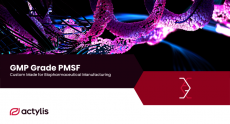Glenmark opens mAb manufacturing facility in Switzerland

The manufacturing facility will supply material for clinical development of its multiple mAbs in development, as well as to supplement Glenmark’s existing in-house discovery and development capabilities, which includes a biologics research centre with 69 employees.
Glenmark spokesman Jason D’Souza told us that the facility will only be for Glenmark’s mAbs and none of the space will be contracted out. This facility has been commissioned and is approved by Swiss Medic, the regulator in Switzerland, he added.
The company’s most advanced mAb candidate - GBR 500 – is intended to treat Crohn’s Disease and other inflammatory indications, has been licensed to Sanofi and is currently in Phase II development. A potential chronic pain mAb - GBR 900 – is currently in Phase I development, while the company’s third candidate - GBR 830, an anti OX-40 antagonist - is scheduled to enter the clinic later this year.
The facility has been designed to use single use bioreactor systems and also houses a suite for manufacturing cell banks. The facility is fully compliant with quality, environmental and safety standards for manufacturing clinical trial material.
Michael Buschle, president of biologics, said: “This state of the art manufacturing facility is a testimony for Glenmark’s commitment to growing its R&D and manufacturing facility in the canton of Neuchâtel. The manufacturing facility would help us bring these antibodies to the clinic faster and position Glenmark as a leading innovative pharmaceutical company.”
The company has six other manufacturing facilities, including four in India, one in the Czech Republic and one in Brazil. It also has six R&D centres.
In about 10 years, Glenmark’s biologics research center has filed several patents on novel biologic entities.
BEAT Technology
The scientists at Glenmark have also invented a technology platform to manufacture bispecific antibodies, known as BEAT, which the company is developing in addition to the mAbs.
The proprietary bispecific antibody platform allows the antibodies to be manufactured from a stable CHO cell line using standard processes. Built-in purification technology facilitates manufacturing to commercial scale, and the platform offers regular antibody pharmacokinetics, as well as a low immunogenicity profile.



















